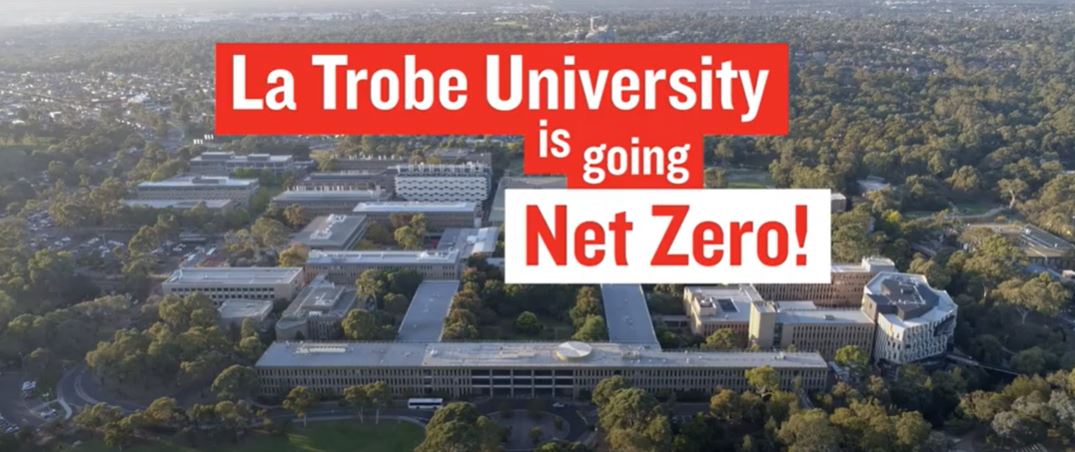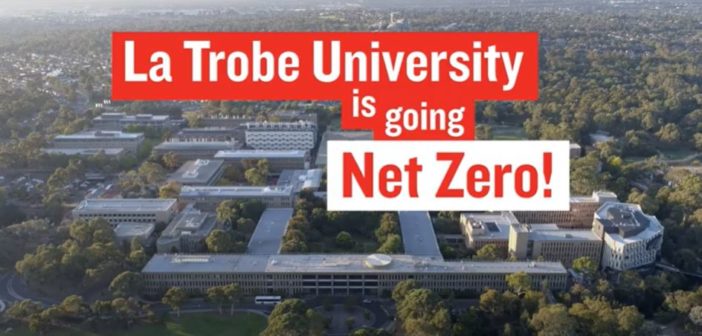
La Trobe University has announced a significant technology investment, partnering with Cisco and Optus Enterprise, to transform its digital infrastructure and underlying network to become a resilient digital university.
This transformation of La Trobe’s digital infrastructure forms part of a wider strategic partnership with Cisco and Optus, involving the development of the University’s Bundoora campus in Melbourne into a University City of the Future incorporating a ‘Living Lab’, along with other key initiatives including joint research and innovation through the establishment of a Digital Innovation Hub and advancement of critical digital workforce skills in areas including cybersecurity.
The digital infrastructure project was devised after publication of an independent Australian national study commissioned by Cisco with Optus (part of the Singtel group) entitled “The Tipping Point for Digitisation of Education Campuses”, and a subsequent digital transformation proposal aimed at accelerating seamless connection of the University’s digital services for students and the community. Investment in the proposal was endorsed in September this year as part of the University’s transformation program, with an initial focus on a next-generation network transformation through Cisco and Optus.
The technology transformation includes transitioning to a Software Defined Network (SDN) which allows for greater control and ease for managing resources virtually; optimising the application experience with capacity to monitor applications running on the network as well as evolving its digital services, to support our community and hybrid working and learning. This will enable La Trobe to be more responsive to changing demands at its Melbourne and regional campuses, as well as providing a major boost to its cybersecurity resilience and capacity to innovate.
La Trobe University’s Vice-Chancellor John Dewar AO said, “La Trobe’s decision to transform its underlying technology infrastructure is a major step towards creating a university that is more resilient and adaptive to the changing landscape of higher education.
”The way we teach, learn, work and operate is fundamentally changing, and technology innovation is rapidly evolving to support this change,” Professor Dewar said.
“La Trobe has ambitious goals to further improve student experience, achieve Net Zero emissions by 2029, increase our research impact and continue to improve our global reputation.
“None of these goals are achievable without a commitment to digitally transform the University, and I look forward to working with our partners Cisco and Optus to help make this a reality.”
Cisco Australia and New Zealand Vice President Ben Dawson said, “The pandemic has accelerated the pace of digitisation in every industry sector, and education is no exception. That includes a need to review hybrid work and learning, improving security posture, expanding digital capability throughout buildings and enabling new innovative digital services.”
“Research commissioned by Cisco revealed that the list of must-have technologies and digital services is growing, whether that be in teaching and learning, research or administration. The research indicated many Australian universities considered digital upgrades to be a priority,” said Mr Dawson.
Managing Director of Optus Enterprise, Chris Mitchell said “Optus is excited to partner with La Trobe University and Cisco to usher in a new era of digital transformation that will have a positive impact on the students, faculty and staff. As we’ve learned over the past year, universities, just like businesses must be able to adopt a hybrid way of learning. La Trobe’s investment into a next generation network will ensure their staff and students have a seamless digital experience on campus and remotely in regional campuses.”
This investment will form part of La Trobe’s $5 Billion University City of the Future, incorporating a Living Lab: using the campus as a living test and experimentation lab, enabled by Cisco’s technology. Part of this Living Lab focus will be to understand the role of technology as it relates to sustainability and supply chain.





